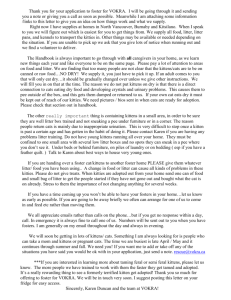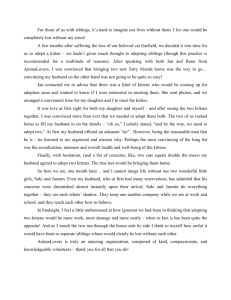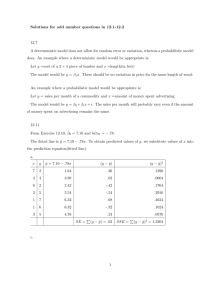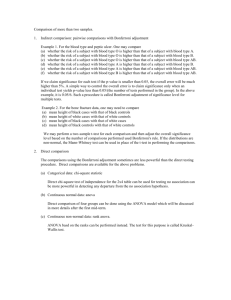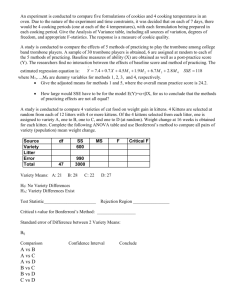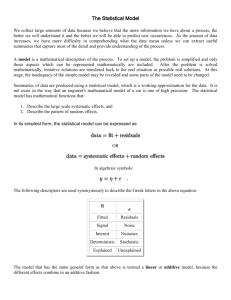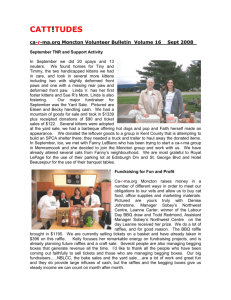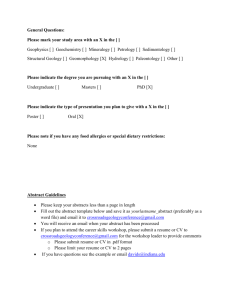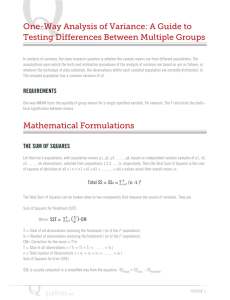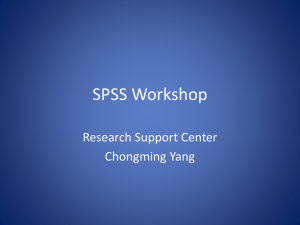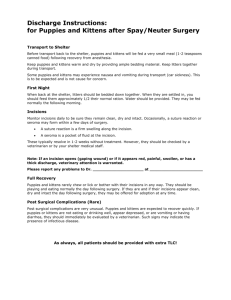practice1
advertisement
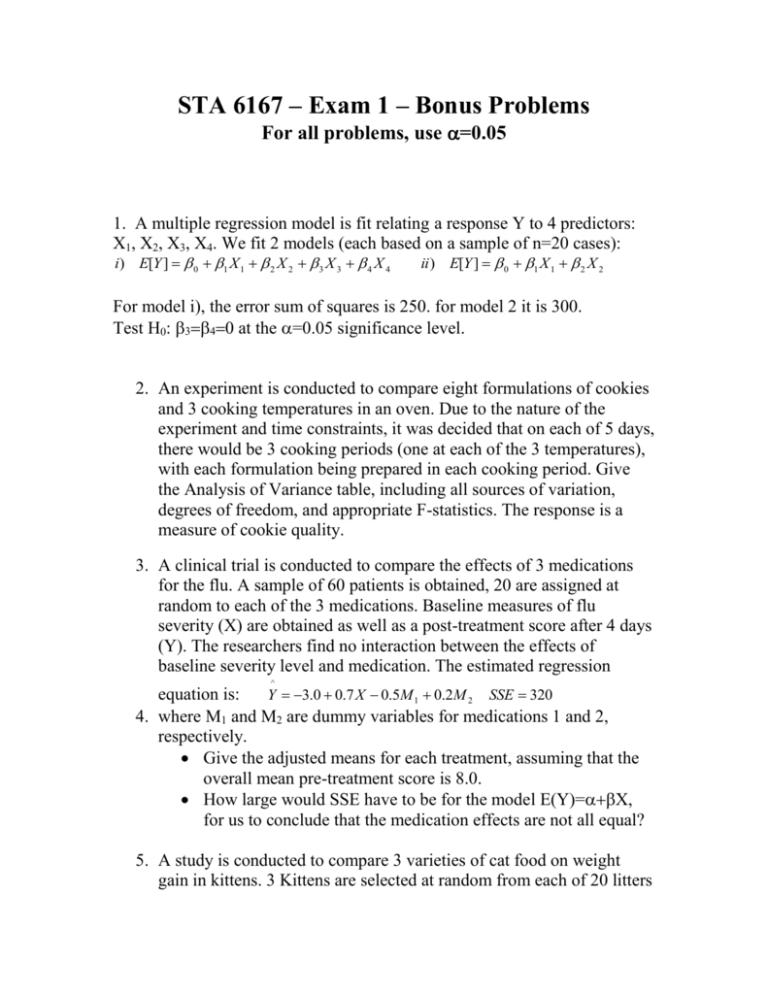
STA 6167 – Exam 1 – Bonus Problems For all problems, use =0.05 1. A multiple regression model is fit relating a response Y to 4 predictors: X1, X2, X3, X4. We fit 2 models (each based on a sample of n=20 cases): i) E[Y ] 0 1 X 1 2 X 2 3 X 3 4 X 4 ii ) E[Y ] 0 1 X 1 2 X 2 For model i), the error sum of squares is 250. for model 2 it is 300. Test H0: at the =0.05 significance level. 2. An experiment is conducted to compare eight formulations of cookies and 3 cooking temperatures in an oven. Due to the nature of the experiment and time constraints, it was decided that on each of 5 days, there would be 3 cooking periods (one at each of the 3 temperatures), with each formulation being prepared in each cooking period. Give the Analysis of Variance table, including all sources of variation, degrees of freedom, and appropriate F-statistics. The response is a measure of cookie quality. 3. A clinical trial is conducted to compare the effects of 3 medications for the flu. A sample of 60 patients is obtained, 20 are assigned at random to each of the 3 medications. Baseline measures of flu severity (X) are obtained as well as a post-treatment score after 4 days (Y). The researchers find no interaction between the effects of baseline severity level and medication. The estimated regression ^ equation is: Y 3.0 0.7 X 0.5M 1 0.2M 2 SSE 320 4. where M1 and M2 are dummy variables for medications 1 and 2, respectively. Give the adjusted means for each treatment, assuming that the overall mean pre-treatment score is 8.0. How large would SSE have to be for the model E(Y)=X, for us to conclude that the medication effects are not all equal? 5. A study is conducted to compare 3 varieties of cat food on weight gain in kittens. 3 Kittens are selected at random from each of 20 litters with 3 or more kittens. Of the 3 kittens selected from each litter, one is assigned to variety A, one to B, and one to C (at random). Weight change at 16 weeks is obtained for each kitten. Complete the following ANOVA table and use Bonferroni’s method to compare all pairs of variety (population) mean weight change. Source Variety Litter Error Total df SS 400 MS F Critical F 540 2000 6. A study is conducted to compare 3 types of traffic signal settings (pretimed, semi-actuated, and fully actuated). A sample of 30 intersections in a large city are obtained, and 10 are assigned to each of the 3 settings at random. Measurements are obtained at each signal at 20 “points” in time, where Y=traffic delay (seconds/vehicle). Write out the sources of variation and degrees of freedom for the ANOVA table. Would these factors each be best described as fixed or random? What would be the appropriate error term for testing for signal effects? What would be the degrees of freedom? 7. A 1-Way ANOVA is conducted to compare the effects of 4 methods of preparing steel. Five replicates of each method are obtained, and the breaking strength is measured. Suppose that the between treatment sum of squares is 1200, and the within treatment sum of squares is 2400. Give the test statistic for testing whether the true mean breaking strengths differ among the 4 methods. Give the minimum significant difference for pairs of methods, based on Bonferroni’s method with an experimentwise error rate of 0.05.

